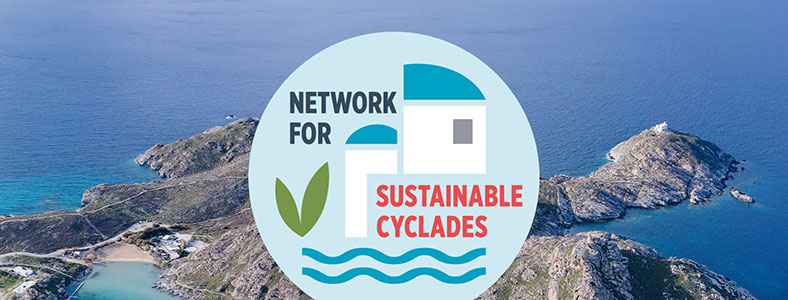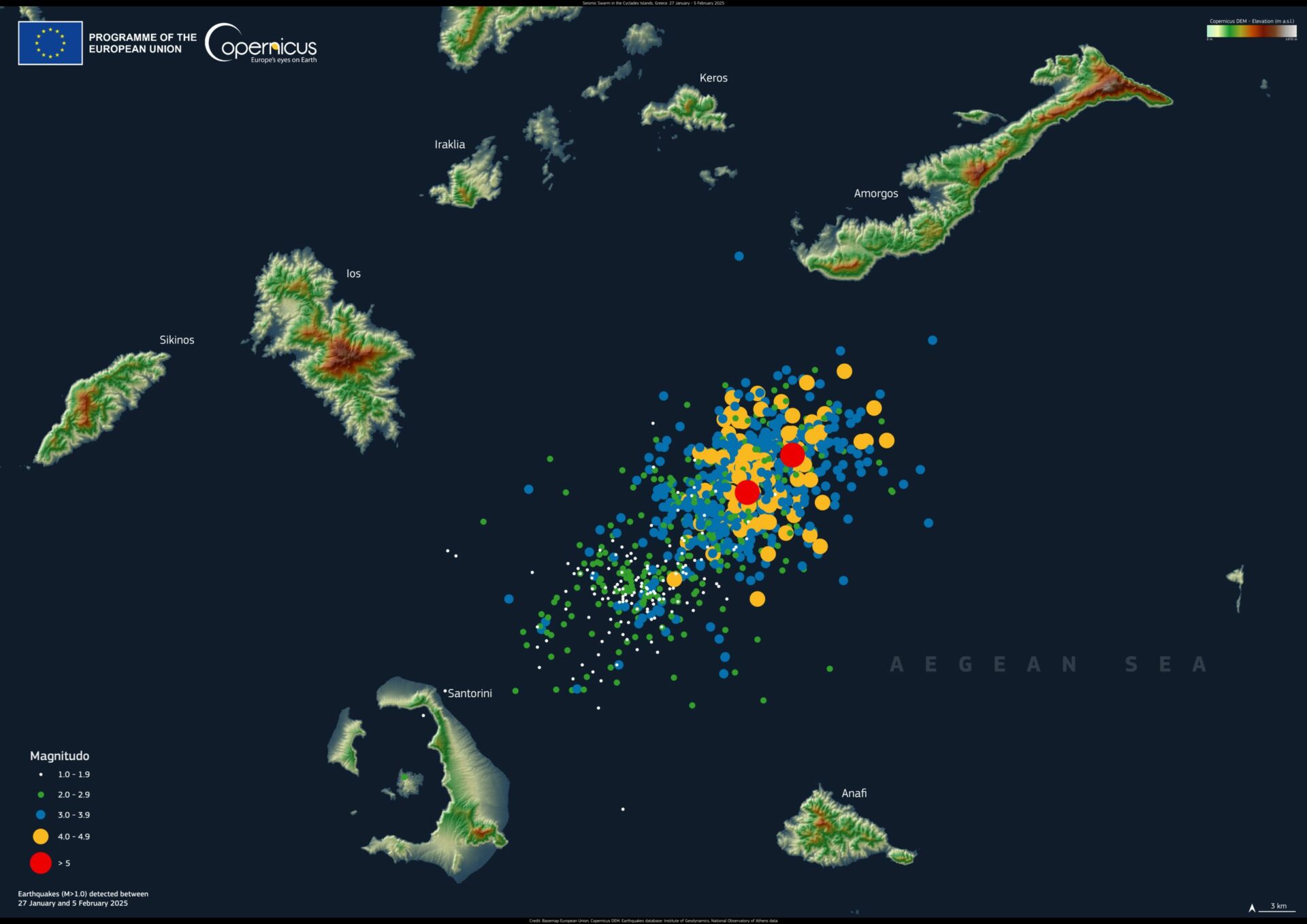The earthquakes of Santorini and the "earthquake" of Milos show the problems of the development model
9 February 2025
The earthquakes in the Southern Cyclades and the “earthquake” of Milos[1], as well as their political and communication management, confirm the positions taken by the Network for Sustainable Cyclades since its establishment: the development model of the islands has completed its cycle and must be changed immediately because our islands are not places of speculative investments, but places of life.
The fear that the earthquakes in Santorini could lead to uncontrollable situations with tragic situations, like Mandra, Mati or even Tempi, since the clientelistic management of “development” with only the goal of easy and quick profit without considering the people and the places led to tragedies, and required the unprecedented rapid mobilization of the state machinery.
However, even in this case it seems that the focus is on “saving” the image of the island in view of the tourist season and not on the people of the islands:
- The focus is on Santorini, while the nearby islands (Amorgos, Anafi, Herakleia, Donousa, Koufonisia, Naxos, Paros, Ios, Schinoussa, Sikinos, Folegandros, Astypalaia) live in similar conditions and are not given the same attention, not even for the extremely understaffed health structures. For example, in Amorgos there was only one doctor for 2000 inhabitants, spread over 10 settlements, and in the last week two more were sent, while in addition to the rural doctors, 8 specialised doctors and nursing staff are planned.
- The closure of schools – which includes Tinos – and other public buildings for several days shows that in this particularly earthquake-prone region, not even basic structural checks have been carried out, while their age without adequate maintenance is a source of minor but not insignificant risks.
- The issues related to building on the islands (ESCHASE, the recent example of Milos etc.) are crucial, since over time the state has been “turning a blind eye” to issues related to the siting, scale and characteristics of new constructions, without taking into account neither climate change issues, nor identity issues, nor issues related to the management of the scarce resource that is water, and ignoring the principles of the European Protocol on Integrated Coastal Zone Management , which since 2009 has highlighted the need to avoid building in coastal areas.
- The problems of the continuation of other productive activities (agricultural, livestock, fishing, manufacturing) are not the subject of any mobilisation and funding, with all that this implies for the functional balance and identity of the islands.
The Network for Sustainable Cyclades from the day of its creation has been struggling so that the issues of sustainability of the islands that mainly and primarily concern their permanent residents – who live a deteriorating reality between an unbearable summer of over-tourism and an unbearable winter of isolation and the interruption of all life – are addressed through the overturning of the tourism model based on the expansion of real estate and “strategic investments” in tourism.
The institutionalization of Local Urban Plans (LUPs), which is currently underway, must take this necessity into account. Local communities need to be informed about the short and long-term consequences of the development model that currently prevails and the alternatives that a different development direction could offer, and to express themselves about what kind of development they want.
Waiting hopefully to see if the messages (which for two years now have been emitted by the mobilisation efforts developed on the islands and in the last few weeks, the roars of earthquakes have also echoed) have reached their destination, the Network for Sustainable Cyclades will continue its efforts to coordinate local communities and municipal authorities, highlighting the possibilities they have to determine a sustainable future for our islands.
Network for Sustainable Cyclades
https://sustainablecyclades.eu/en
contact@sustainablecyclades.eu
[1] The reference to the “earthquake” of Milos refers to the recent journalistic disclosure of the environmental crime in Sarakiniko, Milos, with the building of a hotel with a “legal” permit on one of the 10 most beautiful spots in the world, as well as the immediate (ex-post) governmental reaction and the subsequent disclosure of other similar permits in the same area.



